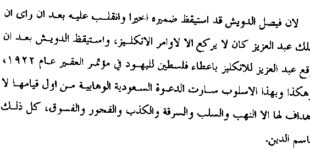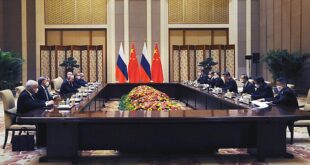- The EU policies in favor of the Western Balkan countries (Albania, Bosnia and Herzegovina, Croatia, Macedonia, Montenegro, Serbia and Kosovo) began to develop in 2000, when the European Union established for the first time exceptional unlimited duty-free access to the EU market for nearly all products originating in the Western Balkans, in Regulation (EC) No 2007/2000). Only wine, sugar, certain beef products and certain fisheries products enter the EU under preferential tariff quotas, as negotiated under the SAAs. The regime was renewed in 2005, and was due to expire on 31 December 2010. Therefore, on 22 February 2010, the Commission proposed to extend this autonomous preferential regime until 31 December 2015. The European Parliament voted in favor of the Commission’s proposal on 13 October 2011 and the Council adopted it on 24 November 2011.
- In 2004, the International Financing Corporation (IFC), part of the World Bank group, launched the Invest in the Western Balkans (IWB) program (initially launched as the European Investor Outreach Program). It was launched with support for the Austrian Ministry of Finance and European Commission, with the objective to promote foreign direct investment to the Western Balkan region. Program implementation ended in September 2009. The IWB program worked with the governments and investment promotion intermediaries (IPIs) to help the economies of Serbia, Bosnia, Croatia, Albania, Macedonia, Montenegro and, later, Kosovo to capture increased FDI by strengthening capacities of the national IPIs and by providing access to leading European investors.
- In December 2009, The European Commission, the European Investment Bank, the European Bank for Reconstruction and Development, the Council of Europe Development Bank, with the endorsement of EU Member States launched the Western Balkans Investment Framework (WBIF) to finance priority projects in the Western Balkans.
The objective was to pool and coordinate different sources of finance and leverage loans with grants for priority projects in the countries of the Western Balkans. An initial focus on infrastructure sectors, including social infrastructure, was to be expanded to include support to small and medium-sized enterprises (SMEs), energy efficiency and other investment sectors.
The first meeting of the WBIF steering committee decided to allocate EUR 26 million of grants for technical assistance support to 26 projects across the region in various sectors. The projects were expected to attract EUR 2.2 billion of loans from International Financial Institutions.
- The WBIF consists of a joint grant facility and a joint lending facility to finance priority projects in the Western Balkans. The joint grant facility contributes to financing the preparation and implementation of priority projects. Good preparation and a strong implementation framework are essential for projects to receive loan financing and to successfully contribute to economic growth in the Western Balkans in the context of the accession process.
The WBIF creates a single entry point for project submission by beneficiary countries and screening by contributors and financiers. The project selection will ensure consistency with the countries’ needs and will support EU accession priorities.
The joint lending facility complements the grant facility. The EIB, the bank of the European Union, and EBRD have committed themselves to making available 1 billion euro in loans. Likewise, CEB is set to enhance its lending to the region for social projects.
- The WBIF’s fifth steering committee took place on 07 December 2011 under the chairmanship of Norway and the European Commission. At that moment, WBIF has granted directly EUR 39m for 39 projects, which will receive loans of EUR 2.6bn, mobilizing investment of some EUR 5.2bn. Part of this cost will be covered by grants of EUR 72m.
- At the meeting, the Western Balkan Investment Facility (WBIF) decided to grant EUR 3m for the preparation of the motorway project running (Corridor X) between Salzburg in Austria and Thessaloniki in Greece. The grant will be blended with other loans and grants from EIB, EBRD, World Bank as well as the Greek Government (the Corridor X is one of the pan-European corridors: it passes through Austria, Slovenia, Croatia, Serbia, Macedonia and Greece).
- The 7th steering committee also approved the financing for a project proposed by Serbia, the Western Balkan Enterprise Development and Innovation Facility (EDIF), aimed to improve access to finance for SMEs, especially access to venture capital funds. The EDIF project was evaluated as worth a total of €141 million.
- During the meeting, the Committee reviewed the results of the 6th call for proposals which had resulted in the submission of 49 projects. Based on the recommendations of the Project Financers’ Group, the Committee approved 22 projects with a total value in excess of €60M. These projects are expected to trigger loans and funds from the IFIs estimated at 1 billion €.
- The total amount of grant funding available for the year 2012 for all WBIF beneficiaries currently stands at about € 40 million. An additional € 20 million is foreseen for Energy Efficiency projects.
- It has been decided to launch a new call for projects for the year 2012. The deadline for the submission of new applications is the 20th of February 2012.
The full list of the WBIF projects (556 projects with a total funding of €2.567.653.040 can be found at:
http://www.wbif.eu/projects?f=gift_grants&menu=Projects%2BDatabase&page=1&per_page=10&show_sea
- Some new examples of the WBIF projects are sent separately for Bosnia and Herzegovina (BIH), Serbia (SER), Macedonia (MAC).
 Eurasia Press & News
Eurasia Press & News



